 |
 |
 |

|
|
 |
| Volume VII, Number 5 |
The
Renault Story in Small-Scale (part 2) - The R5 or Le Car |
Since 1975 the R5 was exported to the USA and was named Le Car by Renault. Just on minor details the car differs from the European R5 TS. The cars were built in France. In Spain however they build the Seite (the Seven). This was a R5 with a boot and not a hatch. As you will see in a coming article, Renault never used the number seven outside Spain.
It was a comfortable car but the phase I model suffered from rust. In 1985 the second phase was introduced. By then the car was named Super Cinq (super five). These cars were much better build and did not suffer from the rust plague. At the same time the production of the Siete stopped.
As with the R4, the R5 had a commercial brother. But it took until 1985, by then the Super Cinq was already introduced, the old R4F was replaced. The Renault Express was born. It was marketed as a complete new car but it was clearly build with Super Cinq components.
A Belgian firm called EBS transferred the Super Cinq into a convertible version. In 1992 the five had reached its end and the Twingo was introduced as a successor. The five has been very popular and well over 7 million have been build.
Models of the phase I exist from all the bigger manufacturers.
From France there are two models by Majorette, the three door and the five door versions. The three door version is a classic Majorette. Good lines, a metal base, suspension and chromed plastic wing mirrors and antenna. It was painted in numerous different 70's colors. The five door version followed the three door in the early 80s and has dull paint and thereby does not look as good as the older version.
It is a different mould and not a simple addition of two doors.
Norev used the Schuco cast to produce their R5. That was not a bad choice as the Schuco is a very nice model. The doors open, realistic wheels and a good overall look make the model perfect. It is a pity that they are really hard to find.
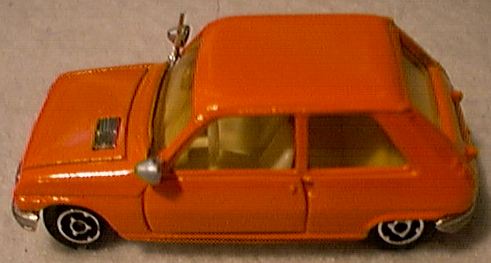 R5 3-door - Majorette |
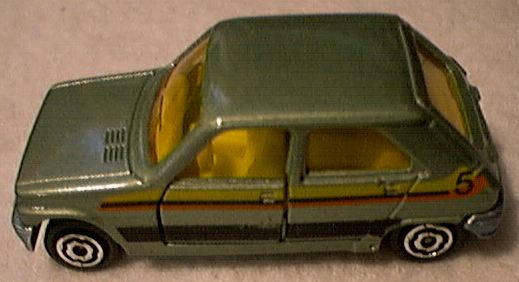 R5 5-door - Majorette |
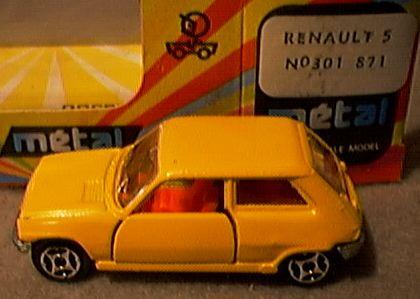 R5 - Norev |
The Matchbox version has to compete with the Norev/Schuco model again (as with the 17) and again looses by far. The car is to tall and it lacks the feeling for the real car. It has an opening hatch and an unnecessary towing hook. The car is by far to underpowered to pull any trailer available in the Matchbox range. Again the Polistil version is a bit roughly cast and the wheels are to big. The Guisval model is a very good model that gives a good feeling for the real car. Suspension is fitted and the doors open. Siku introduced their five in 1979 in metallic light blue. Due to the plastic base it does not give the feeling of a 70s Siku (the same goes for their BMW 633 and the Matra Rancho). The overall quality is good. To the end of the production it was produced in red. Hot Wheels also did the R5, part of their efforts to offer European models in Europe. It is quite decent by Hot Wheel standards.
The street versions of the Turbo was done by Majorette and Tomica. Both
models are very good and not difficult to find. Corgi made the rally version.
They did that very well. Tomica added some rally lights and voila the race
version was born. The five was not only popular in real life but also with
Majorette as they produced their fourth version, the Super Cing GT turbo.
As far as I know the car was only available in race colors and with decals.
Hot Wheels even produced a Super Cinq in average detail.
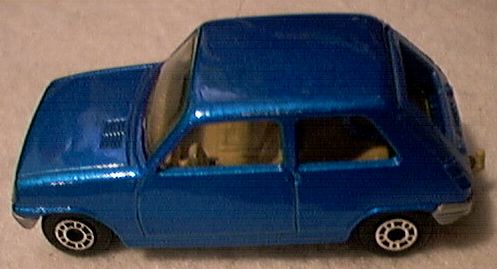 R5 - Matchbox |
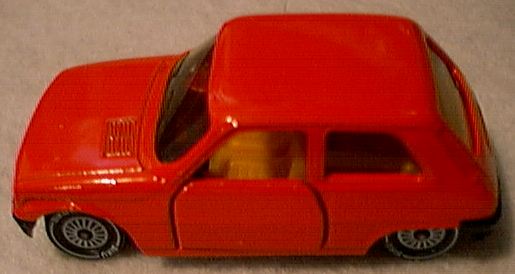 R5 - Siku |
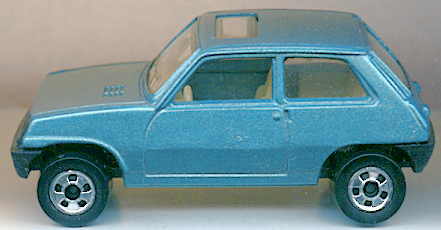 R5 - Hot Wheels |
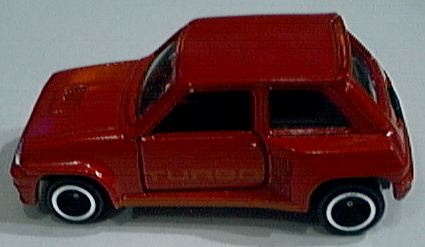 �R5 Turbo - Tomica |
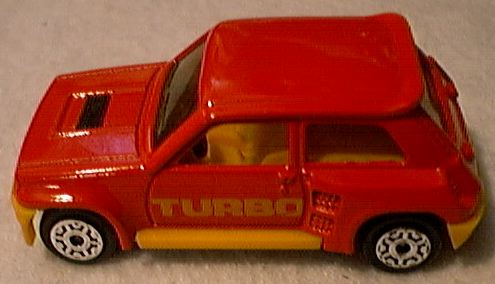 R5 Turbo - Majorette |
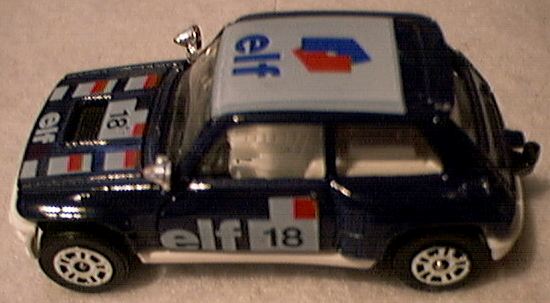 R5 Turbo racer - Corgi |
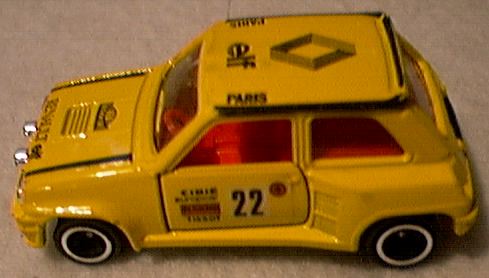 R5 Turbo rally - Tomica |
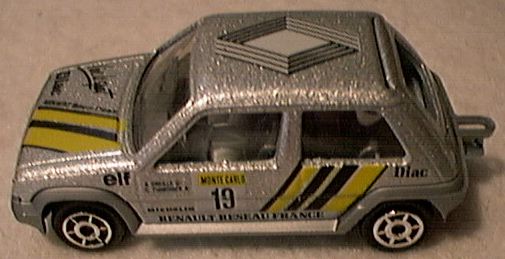 Super-Cinq GT - Majorette |
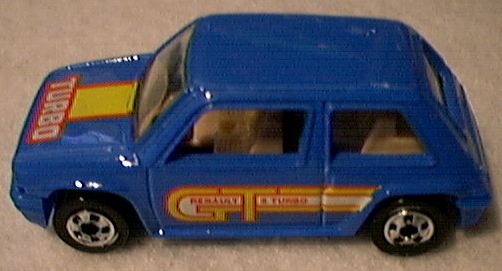 Super-Cinq GT - Hot Wheels |
The commercial version the Express was made by Majorette. This rapid van stayed in production for a very long time and can still be found in the small tucked away toyshops.
In the next episode we continue the Renault story with the cars after 1980.
|
HOME>>
|
|